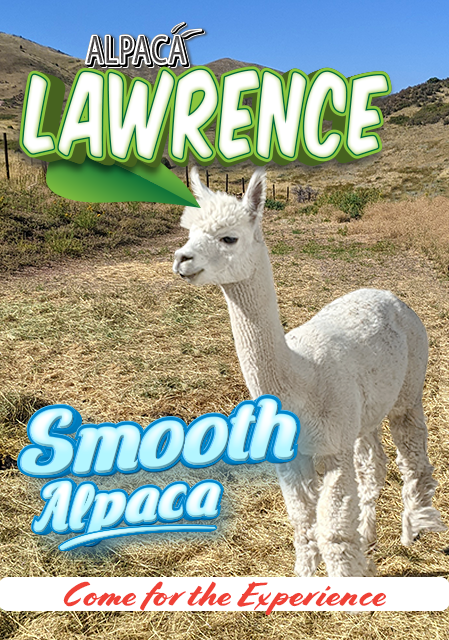
Best rated alpaca experiences and holiday recommendations in Denver, Colorado: Alpacas are low-maintenance animals that require minimal housing needs and lower veterinary bills than many other types of livestock. They graze, not pull, plants down to the roots, so they help maintain pastures and reduce the need for supplemental feeding. Their padded feet cause less wear and tear on the ground than a horse’s hooves, making them an environmentally friendly alternative to traditional livestock. Shearing and processing the fiber is a huge source of income for alpaca ranchers. They sell raw alpaca fiber to groups that turn it into finished goods and participate in local and national alpaca shows. They may also stud their females (female herd sires) with other alpaca owners for a fee. Discover additional information at alpaca experiences in Colorado.
Alpacas have a lot to offer visitors. They are quiet, serene animals that graze peacefully in their pastures and often greet you with gentle nose kisses. They produce soft, silky fiber and are much warmer and stronger than sheep’s wool. They are easy to raise and get along well with other farm animals, making them ideal for hobby farms. They also qualify as livestock, which may allow you to take advantage of tax advantages and incentives.
Are you planning a trip to the Mile High City? Most people pack their itinerary with a Colorado Rockies baseball game, a concert at Red Rocks Park and Amphitheater, and a hike at Rocky Mountain National Park in addition to all of Denver’s museums and botanical gardens. Yet, if you’re looking for an off-the-beaten-path adventure, you can’t miss an alpaca experience. Over the last several decades, Denver has become home to these gorgeous animals because Colorado’s arid climate mimics that of their native habitat.
For many years, zoologists assumed alpacas and llamas had descended from guanacos, and they were classified in the genus Lama. However, in a 2001 paper titled “Genetic analysis reveals the wild ancestors of the llama and the alpaca” in the journal Proceeding of the Royal Society B, researchers showed there is “high genetic similarity” between the alpaca and the vicuña, and between the llama and the guanaco. They recommended that the alpaca be reclassified as Vicugna pacos.
All members of your group will have the opportunity to participate in a fully interactive experience. It typically lasts around 1 hour and 30 minutes. Its environment is ideal for nature lovers : Most people who live in Colorado love the outdoors because the state offers a little bit of everything. Even if you’re just visiting for the weekend, you can embrace all that nature has to offer. An alpaca ranch offers stunning scenery and a relaxing atmosphere where you can take in the fresh air. Are you looking for an educational opportunity for your kids? Come enjoy an alpaca experience that’s not only fun but also informative. This alpaca experience takes place on a fiber farm. This type of farm raises animals like alpacas, sheep, goats, llamas, angora rabbits, and more for their fleece and wool.
Do alpacas make noise? Alpacas are very quiet, docile animals that make a minimal amount of sound. They do make a humming sound as a means of communication or to express concern or stress. Most communication between alpacas is nonverbal. Occasionally you will hear a shrill “alarm call,” which usually means they have spotted something of concern nearby, and they are warning others in the herd. The concern may be a predator, or may be something they are not familiar with, like a cow or horse in a neighboring field. Male alpacas also “serenade” females during breeding with a guttural, throaty sound called “orgling.” Find more information at https://meetalpacas.com/.
As with all livestock, owners and visitors should use common sense and a degree of caution when working around alpacas. People working with alpacas should wear long pants and shoes or boots that have traction and cover the whole foot. Proper handling of alpacas, as well as all camelids, requires humans gaining their trust by using a calm voice and light restraint. Handling alpacas for herd husbandry is best taught to novice alpaca owners by experienced owners or experts.
Are alpacas easy to train? Alpacas are very smart animals and are fairly easy to train. It is best to start training them when they are young so that they will accept a halter and learn to follow on a lead. Many owners also enjoy training them to walk through obstacles. Some even compete with their alpacas at shows where they walk over, through, and around objects and also jump over small hurdles. Also, it is helpful to train alpacas to ride in a trailer or van if they ever need to be transported to a show or another farm. Alpacas are easy to transport, as they normally cush (lay down with their legs folded under them) when traveling. Be aware that alpacas should not be tied up when traveling.
Adorable, docile and soft, alpacas are prized as pets and cattle around the world. There are no wild alpacas. Alpacas are domesticated versions of vicuñas, South American ruminants that live high in the Andes. Alpacas are related to llamas, which are domesticated versions of another wild Andean ruminant, the guanaco. While llamas are used as pack animals, alpacas are raised mainly for their soft wool. Guanacos and vicuñas are found throughout the Andes Mountains. They are descended from camelids that developed in North America and migrated to South America 3 million years ago, according to Phil Switzer, an alpaca breeder based in Colorado. These animals evolved into guanacos and vicuñas, and about 6,000 years ago, people in the Andes began to domesticate them. There are two breeds of alpaca, the Huacaya and the Suri. Huacaya alpacas are more common, according to Switzer.

